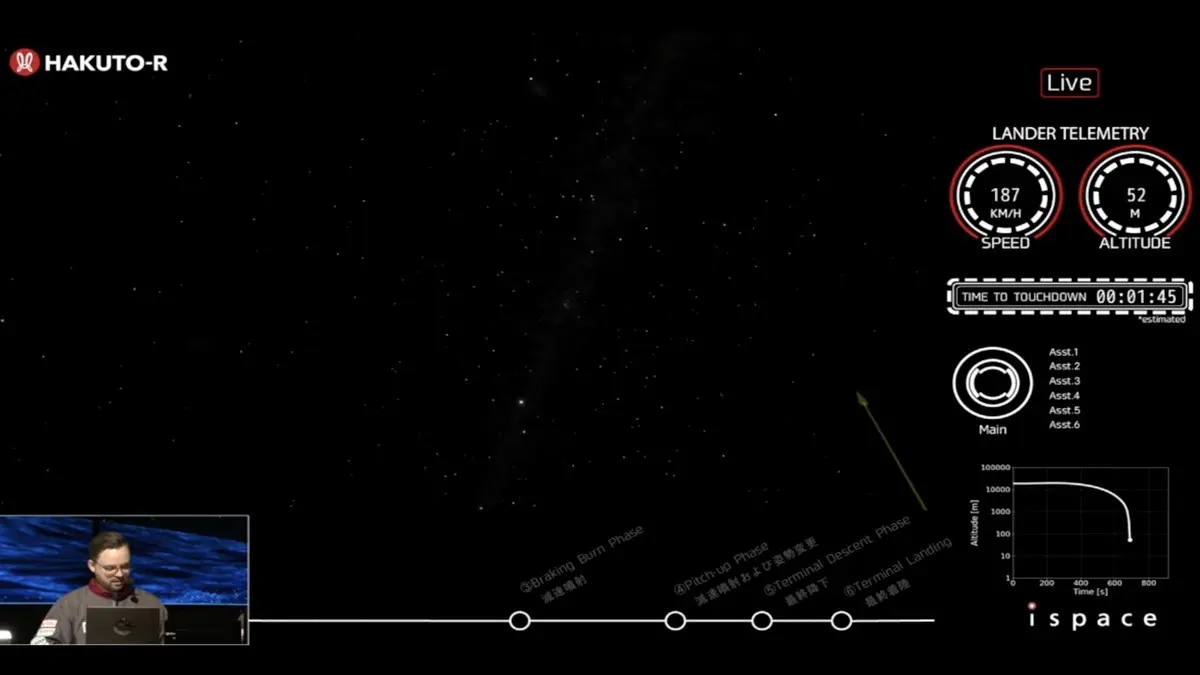Japan's Resilience Spacecraft Falls Silent While Attempting to Land on the Moon, Crash Feared

Japan’s Resilience Spacecraft Likely Crashes on Moon, No Update from Livestream | Image: X
Japan’s Resilience spacecraft, built by private company ispace, has likely crashed during its landing attempt on the Moon early Friday morning, casting a shadow over the nation’s ambitious lunar exploration efforts.
The mission aimed to make history by becoming the first private Japanese spacecraft to perform a soft landing on the Moon's Mare Frigoris region, but a sudden loss of signal during the critical final descent phase has fueled fears of another failed landing.

The Resilience spacecraft began its descent from a 100-kilometer lunar orbit, aiming to execute a precision landing that would make Japan the first nation to successfully land a privately-built lunar vehicle. Mission control and global audiences closely monitored the tense descent via ispace’s livestream, which showed the spacecraft decelerating smoothly and pitching up as it entered the terminal approach phase, just 5 kilometers above the lunar surface.
For a brief moment, it seemed the spacecraft was on track for a perfect landing. However, as Resilience neared the Moon’s surface, telemetry data from the spacecraft abruptly vanished from the broadcast, and the livestream was cut off without any explanation from mission control.

Shortly after the livestream ended, ham radio operators who were monitoring the mission reported a complete loss of signal from the Resilience lander, coinciding with the expected landing time. This sudden silence from the spacecraft is eerily reminiscent of ispace’s previous lunar attempt in 2023, which also ended in failure due to a loss of communication during descent.
As the spacecraft failed to establish contact after the critical moment, global space enthusiasts and experts began to worry that the mission might have met the same fate as its predecessor a crash landing on the Moon's surface.
Despite the growing concerns, ispace has yet to release an official statement confirming the outcome of the mission.









